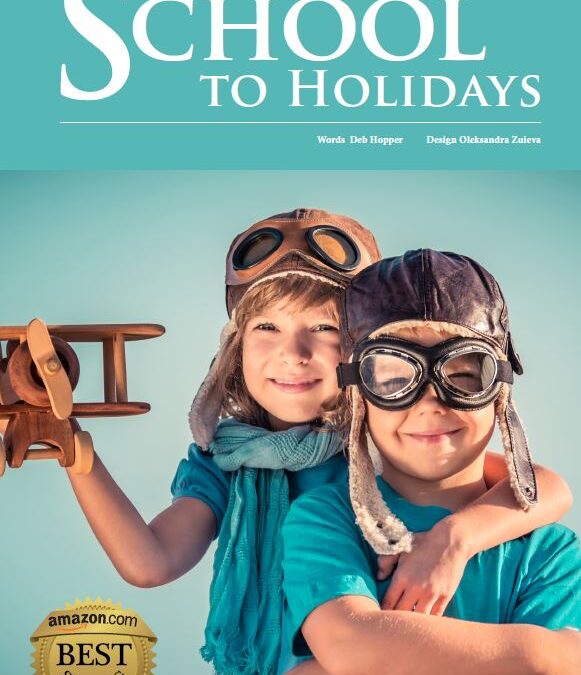Transition from School to Holidays –
Written by Deb Hopper
Published in 
Great Health Guide articles available in Audio:
CLICK HERE FOR THE AUDIO VERSION
The end of the school year brings much excitement for children and families. The anticipation of Christmas, holidays, going away and seeing family and friends can be very exciting. As well as looking forwards to the holidays, there are many celebration events at school including school plays, school
concerts, end of term movies and excursions as rewards for children.
Even though this can be exciting, it can be very unsettling for many children. Home and school routines are often disrupted as children go to concert or school play practices or away from the school for excursions. At home and on weekends there are the end of year Christmas parties for sporting or church groups, Nippers BBQs or street Christmas parties. Again, these are all fun, but it pulls children out of routine which can be unsettling. In addition, the social and sensory demands of these social events can be extremely challenging to children.
Five Top Tips for helping support children and making them feel safe in the transitions between school and the summer holidays.
1. Create a calendar for before and during the holidays. Kids love to see things visually and by helping them create a calendar of what’s coming up, they see more concretely what plans are for them and the family and this makes them feel more settled.
You can find some great downloadable resources here which will help get you started. On our free downloadable, you can see that the weeks are colour coded. You can edit and change to suit your family. The pink weeks are for the 2 weeks prior to holidays. The white weeks are school holidays and the yellow weeks are the first two weeks back at school. Use clip art or pictures (especially for younger children), or just write the main activities for each day or after school. e.g. add in play dates, holiday care days, nights away etc. We have some examples at the above link.
2. When going to an event tell your child in advance (or show them on your calendar as above) and tell them as much as you know about the event. How many people will be there? Who will be there that you know? Will they know any of the children or adults? If there aren’t many children there, what activities will your child be able to do? Should
you plan to take a small pack of Lego, colouring in or their favourite small toy?
3. If your child gets easily overwhelmed and finds it difficult to cope in busy and loud situations (as parties or BBQ’s can be) talk to them about how they will be able to tell you if they aren’t coping well or if they need some ‘away’ time. This could be a code word (e.g. code yellow or code red), or a hand signal. Encourage them to come and let you know somehow if they need help or need to leave the event.
4. When you arrive at an event, chat to the host and ask if there’s a quiet area that your child can go and ‘hang out’ if they need some retreat space. This could be a quiet area of a lounge room, outside away from others or a spare bedroom. Ask your host if it’s OK for your child to have some quiet time away by themselves.
5. Increase the amount of active outside play. Just as adults benefit from movement and exercise to help de-stress and reduce anxiety, so do children. Make plans for extra trips to the park, walk around the block after dinner or have a picnic and kick a ball around.
Make sure you add these things to their calendar so they know they are coming up!
As adults we can make children feel more in control during times of transitions. Don’t forget to check out the free downloads to help your child settle back into school.
Reducing Meltdowns and Improving Concentration
The Just Right Kids Technique by: Deb Hopper
Deb Hopper is an Amazon #1 Best Seller author. She is a practicing Occupational Therapist at Life Skills 4 Kids on the NSW Mid North Coast, Australia, she understands the day to day struggles that children, parents and teachers face and can be reached on her website.

